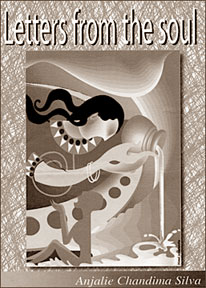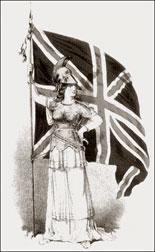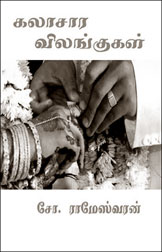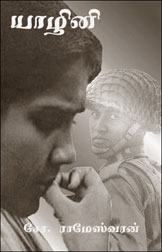|

Conveying the "fullness of the world"
through poetry:
Reviewed by R.S. Karunaratne
 Everyone is a poet inside even if they have never written a line of
poetry in their lives. This is because poetry is primarily a matter of
feeling. Most of us never put our feelings into words but we experience
poetic emotions all the time. Everyone is a poet inside even if they have never written a line of
poetry in their lives. This is because poetry is primarily a matter of
feeling. Most of us never put our feelings into words but we experience
poetic emotions all the time.
So long as emotional expression remains an essential element of
poetry, it will have some kind of rhythm in it. Similarly rhyme too has
a direct connection with human beings. Lullabies, tongue twisters and
nonsense verse all have a certain kind of rhyme.
Another element of poetry is the use of metaphors. Although they
sound somewhat unnatural at times such figurative use of words has a
strong connection with poetry. Most students, including undergraduates
shun reading poetry. They think it is a waste of time. However, with a
little change of attitude, they will enjoy reading poetry profitably.
For this we have to think of a poem as someone's effort to put into
words his impressions, feelings and ideas. Every good poem is a result
of an emotion felt by a poet.
If you are new to poetry, you might think that it is just a lot of
funny words strung together methodically. This appears to be a false
notion. If you want to write a poem, you do not have to look for fancy
words in a thesaurus. Just use short and simple words. Do you find any
fancy words in Tennyson's lines:
"Low on the sand and loud on the stone
The last wheel echoes away."
Meanwhile, there is a sharp distinction between poetry and prose. If
you want to write prose, you have to write sentences and paragraphs. For
poetry you have to write lines, thought phrases and stanzas. Rhythm is
common to both prose and poetry, but poetry needs a stricter rhythm
running on a definite pattern or on an irregular pattern.
The other point to remember is that poetry appeals to emotions while
prose appeals to intellect.
In order to make their poems appealing to readers, poets use vivid
figures of speech. What is more, poetry suggests while prose tends to
explain. As a result, readers find that poetry is more compact than
prose. Another difference is that poets use words with emotive meaning.
Meanwhile poets write poems more for the ear than prose writers.
A good poet uses words that are musical. Although such differences
appear between poetry and prose, both appeal to our five senses.
If you look at the history of literature, poetry has existed from
time immemorial, possibly from the time the human race emerged from its
shadowy pre-history.
Therefore the notion that poetry is something contrived does not hold
water. The only trouble is that most poetry seems unnatural and
irrelevant. However, good readable poetry springs from deep human
feelings and is quite natural.
I enjoyed reading Anjalie Chandima Silva's "Letters from the soul"
because she writes about the "lived fullness of the world." In other
words her poetry extends our own limited experience by means of
imagination. For instance the opening poem entitled "Reality" evokes the
reader's emotions with the following lines:"
"Again, I heard the cry
Raindrops kissed the earth
The Bo tree stood still
With a deep silence
There is rhythm in her poem entitled "solitude":
"I close my eyes
For a moment
Recall the pleasant memories
Then I feel
You are with me"
Similarly, in "Vision" the words "I see" have been repeated to
heighten the effect of rhythm and there is a visible beauty in the
brevity or words and expressions.
Except in England where poetry is an exportable commodity, publishers
in Sri Lanka are reluctant to publish books of poetry. They are of the
view that there is no demand for poetry. If there is no demand we must
create a demand because poetry is essential to lead a meaningful life.
It is heartening to see at least a few poets have come forward in recent
times to publish their books of poetry as author publications.
With the rapid growth of English education there will be a demand for
poetry in the near future.
Even today some English newspapers devote a lot of space to publish
poetry. Books such as "Letters from the soul" will help to usher in a
new era of poetry readers.
"You taught us English"
Imperial Entanglements and Literature in English:
 Try as I did, I could not quite get out of my mind the words of
Aristotle as I sat listening to Professor Fakrul Alam's monologue on
Imperial Entanglements and Literature in English, Friday before last, at
the King's Court of the Transasia Hotel. Try as I did, I could not quite get out of my mind the words of
Aristotle as I sat listening to Professor Fakrul Alam's monologue on
Imperial Entanglements and Literature in English, Friday before last, at
the King's Court of the Transasia Hotel.
"From the hour of their birth, some are marked out for subjection,
others for rule". The words seem so true as I listened to the Professor
describe the contents of his book published last June focusing on
subjects ranging from Daniel Defoe to R.K Narayan, dressed as he was in
full western attire, speaking in the language of the colonisers.
Except for the ladies in saris, everything around us that morning,
from the huge silk bows tied to the back of the chairs, to the huge
chandeliers, to the name of the venue itself, had some connection with
our invaders.
As the audience listened, dozed, day-dreamed while Professor Alam
read from his paper, Aristotle's words sounded more true than ever.
"From the hour of their birth some are marked out for subjection".
More than fifty years after independence we are still shackled to the
Empire. Why else would we still try to analyze its impact on us and on
how and what we write, using their language?
Is it not high time that we accepted (to misquote Caliban) "You
taught us English" and moved on from this point hopefully on to higher
pastures? Should we keep on analyzing Bacon's influence on English
colonization and the impact of his thoughts on English imperialism, now
that we are well into the first half of the 21st Century? Does it really
matter that Defoe was ambivalent towards the empire while Swift used
bitter satire to mock at outlandish expeditions?
Whether we should or not harp back to the days of imperial rule, this
is what we continue to do. We still continue to see Robinson Crusoe as a
successful coloniser. "An exemplary planter settler; the owner of a
flourishing plantation community when it would be far more interesting
to analyze his relationship with Friday in a homosexual context.
Edward Said and his comments about Mansfield Park is amplified out of
proportion while every attempt is being made to dig out the marginal
visible presence of the empire in literature written by writers who seem
to be hardly aware of the empire.
To quote my father, Daya Dissanayake, a bilingual writer, "just
because we had to learn and use English as the International language,
in our country, need we still let ourselves be down trodden by the
colonisers.
Should we forget that throughout history, the invaders or colonisers
have always been less civilized than the people they colonised? In our
writings should we imitate them, or try to please them, sometimes even
intentionally distorting the life and culture of our people?"
"Pure human folly" as Tissa Jayatilaka summed up the age of the
colonisers. Folly which should now be forgotten. Let's stop barking up a
tree that has already been cut down. - Aditha
Yarlini and Kalachchara Vilangugal
  Two publications, a novel titled "Yarlini" and a collection of short
stories titled "Kalachchara Vilangugal" were released recently by
Somasunderam Rameswaran. Two publications, a novel titled "Yarlini" and a collection of short
stories titled "Kalachchara Vilangugal" were released recently by
Somasunderam Rameswaran.
"Yarlini" is a story of a young soldier of Hambantota who serves in
the north where he meets a Tamil girl who has been deceived by a Tamil
youth.
The girl falls in love with him. Although the soldier Gemunu likes
the girl he does not like to marry her. Why? The story is narrated in a
simple language with a political background. Twelve short stories are
included in the short story collection; all of them deal with
contemporary issues.
Rameswaran has to his credit forty one publications in Tamil, Sinhala
and English languages. His first novel in Tamil was published in 1992
and up to now he has published 36 Tamil novels, collection of short
stories, collection of children's stories and drama.
He has also published 6 books in Sinhala (two novels, three
collections of short stories and a collection of children's stories).
And he has also published a collection of short stories in English
titled "Air of Freedom".
He has won more than ten prizes in short story and novel competitions
held by various organizations in Sri Lanka, Canada, UK and Australia.
Rameswaran was awarded the Sahithiya Award in 2005 for his collection of
short stories in Tamil titled "Muhavariyai Thedukirarkal".
And a publication on drama titled "Kanal Neer Gangaiyakirathu" was
awarded the National Award for 2007. Further in 1998 and 2005, the North
East Provincial Council awarded the first prize for his collection of
children's stories.
Rameswaran's short story in English "Water" has been included in
"Nothing Grows Under the Banyan Tree and Other Stories" a Daily News
anthology of short stories.
From clay tablet to computer
 Printing has been the principal vehicle for conveying ideas during
the past 500 years. The history of printing is an important part of the
general history of civilisation. Printing has been the principal vehicle for conveying ideas during
the past 500 years. The history of printing is an important part of the
general history of civilisation.
Undoubtedly to fully understand political, constitutional,
ecclesiastical and economic events, and sociological, philosophical and
literary movements one must take into account the influence which the
printing press has exerted on them.
Now, Nihal P. Abeysinghe in his book "Mudritha Sannivedanaye
Sanwardanaya" focuses on he art of printing which is virtually unique in
the human experience in that it emerged fully formed.
Printing was such an immense improvement over the hand copying of
books that it caught on immediately and within two generations the art
of the illuminated manuscript had become all but extinct. The earliest
printers, however, continued many of the traditions of the scribes,
making use of textual contractions and elisions to reduce the volume of
matter to be printed.
Writing about the period called the age of the incunabula (1450-1500)
Abeysinghe says though this is considered as the first phase of the
printing press by Western writers this is not true, and that according
to historians of east, printing first started way before the 15th
century.
In addition many incunabula were designed to be rubricated by hand,
that is, to be decorated with flourishing initial letters and other
embellishments, done by the now underemployed and presumably
discontented scribes.
Book illustrations in the Incunabula period were prepared from
woodcuts, that is, printed from blocks of wood hand engraved with their
subjects by skilled artists and artisans. This form of illustration
allows great artistic expression, and the results of this technology are
eagerly collected today, and appreciated for what they are, the first
commercial art to be available to all people.
From the beginning of printing to the internet through the eight
chapters Abeysinghe traces how knowledge, the key to power, became
available at a tiny fraction of the cost of a handwritten book.
This development proved an enormous impetus to literacy, and banished
forever the dark days when only a selected few held the key to
deciphering the magic letters of the old parchments.
The printed book arrived just as an emerging middle class of
tradesman and artisans were rising in social, political, and economic
power, further challenging the institutions that had held the masses in
their absolute control for a thousand years.
Begun in Mainz, Germany, by Gutenberg, in the 1450's after the city
was sacked in 1459, many of Gutenberg's followers removed to Cologne.
From there printing spread across Europe with remarkable speed.
In 1470 there were fourteen printing houses on the continent; in 1480
there were more than a hundred. From the German states printing moved
almost immediately into France and the Italian Kingdoms, then arrived in
Holland in 1472, Belgium in 1473, Spain in 1474, finally reaching
England in 1477.
This explosion of knowledge, coupled with the new humanist world view
of the Renaissance, swept away the lingering intellectual darkness of
Medievalism, and ushered in the centuries of social and technological
progress that have made possible the unprecedented prosperity of the
modern world. |
